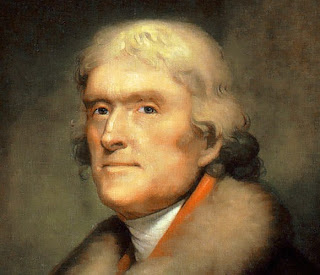
“A constitution is not the act of a government, but of a people constituting a government; and government without a constitution is power without a right. All power exercised over a nation, must have some beginning. It must be either delegated, or assumed. There are not other sources. All delegated power is trust, and all assumed power is usurpation. Time does not alter the nature and quality of either.”[1] -– Thomas Paine
Under federalism power is shared between the national government and the state governments. The federal government’s powers are restricted to those explicitly stated in the Constitution, being known as “enumerated powers.” The Tenth Amendment to the Constitution states: “The powers not delegated to the United States by the Constitution, nor prohibited by it to the States, are reserved to the States respectively, or to the people.” Thus, any power asserted by the federal government which is not entrusted to it by the people under the Constitution (either expressly or clearly implied as “necessary and proper”) is either non-existent, or is usurped. This constitutes the difference between liberty and tyranny.
As a prelude to the adoption of the Tenth Amendment (as part of the Bill of Rights), and in connection with the principle of enumerated powers in the Constitution, James Madison in the Federalist stated, “The powers delegated by the proposed Constitution to the Federal Government, are few and defined. Those which are to remain in the State Governments are numerous and indefinite. The former will be exercised principally on external objects, as war, peace, negotiation, and foreign commerce …The powers reserved to the several States will extend to all the objects, which, in the ordinary course of affairs, concern the lives, liberties and properties of the people ….”[2] Madison also stated, “The government of the United States is a definite government, confined to specified objects. It is not like the state governments, whose powers are more general. Charity is no part of the legislative duty of the [federal] government.[3] Thus, pursuant to the precepts of the Constitution and the Bill of Rights, the federal government was intended to have less power than the states, with federal powers being “few and defined” and “confined to specific objects.” For example, other than its powers under Article I. Section 8 to “regulate Commerce” and to “suppress Insurrections and repel Invasions,” nowhere in the federal Constitution is Congress given authority to legislate over local and state matters concerning the health, safety, and education of citizens. How far have we strayed from these original standards of our Republic?
By: J. David Gowdy
____________________
[1] Thomas Paine, Rights of Man (Watts & Co., London, 1906), p. 97.
[2] Federalist No. 45 (emphasis added).
[3] James Madison, Speech in the House of Representatives, January 10, 1794; Lance Banning, ed., Liberty and Order (Liberty Fund, Indianapolis, 2004), p. 158 (emphasis added).






